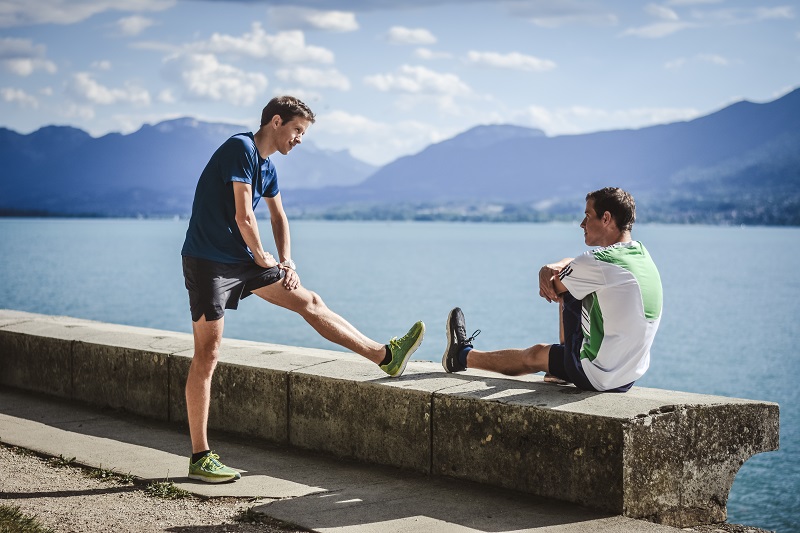
Recovery is an important part of running training. Taking care of recovery allows you to best schedule your sessions and fully assimilate the benefits of your training. The more you increase the mileage and intensity of the sessions, the more essential it becomes. We will explain how to recover from training, covering the 3 essential pillars and some bonuses.
Contents
3 pillars of recovery: Eat, Drink, Sleep to recover from training
Eat within an hour after the end of training
After a big workout, you should ideally eat within an hour of training, at least one snack. This is called the metabolic window. During this period, the body assimilates proteins and carbohydrates best. Recommend these fuel intakes post-intense effort to aid muscle repair and recharge carbohydrates.
For example, you could eat almond milk, oil seeds like nuts or almonds, white meat or eggs, and why not a recovery drink. Eating a balanced diet with sufficient fruits and vegetables also helps to avoid acidification of the body.
Drink throughout the day
The body is made up of 60-70% water. When running, the main water losses are through perspiration. Recommend drinking at least 1.5L of water daily, increasing intake during extended exertion or hot conditions.
Hydration is an essential element – water first. Ideally, hot water in tea or herbal tea allows optimal hydration. It can be supplemented with an exercise drink during a long session or for recovery after exercise.
Beware of myths – beer must remain a pleasure drink. Consume alcohol moderately due to its dehydrating effect and high glycemic index, which can offset perceived benefits 😉
Sleep at least 7 to 8 hours a night
Sleep is the most regenerative element for the body, both physically and mentally. You must sleep at least 7 to 8 hours a night in a calm environment. Also, during really intense weeks, you should even aim for 9 hours of sleep. Consider a brief 20-minute afternoon nap during extensive training weeks or weekends, being cautious not to oversleep.
If we respect the 3 pillars of recovery; eating well, drinking well and sleeping well, then we’ve already done most of the work to recover from training. Beyond this, we can go a little further to get the last percent of recovery optimisation.
Bonuses to regenerate even better
As a bonus, there is massages, compression socks, electrostimulation and cryotherapy.
Massages
Massages have a relaxing effect and can help reduce body aches. They are most effective in the evening before going to bed and can promote relaxation before sleep. It is generally recommended to massage from the bottom up on each muscle, starting with the calves, then the thighs.
Compression socks
Compression socks allow faster cleaning of metabolic waste in muscles, such as toxins and lactic acid. They can also be useful for long journeys to keep your legs light.
Electrostimulation
Electrostimulation can have beneficial effects on recovery by increasing blood flow, the production of endorphins and the relaxing effect, depending on the frequencies used. For an injury, such programs can be even more beneficial. Be careful to follow the manufacturer’s recommendations for the zones, intensity and frequency of use.
Cold and hot
The variations in temperature are cultural in the Scandinavian countries: alternating hot (sauna) and cold (frozen lake). Few studies support the benefits of the sauna on muscle recovery, but the cold options, especially cryotherapy can have benefits on the reduction of the perception of pain and on the regulation of inflammatory processes. Also, for certain wounds cold temperatures can help regeneration.
Finally, we must remember that recovery begins straight after a training session – a little jogging at an easy pace allows the best elimination of toxins. Stretching is not necessarily recommended (especially after hard sessions where the muscles have already been used a lot).
Everyone can recover from training based on how they feel, as recovery also involves the mind! If you believe you’ve done your best, your body is likely already recovering better.